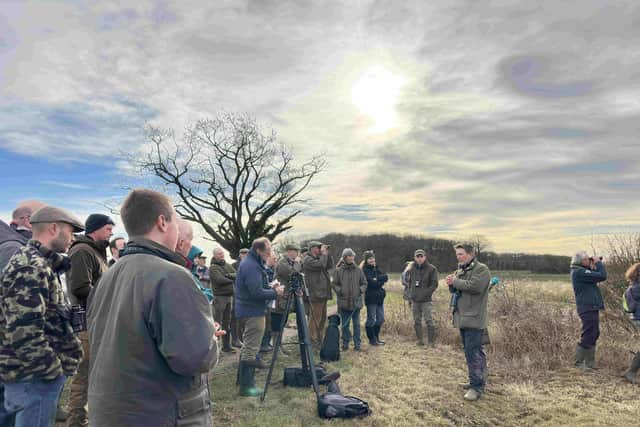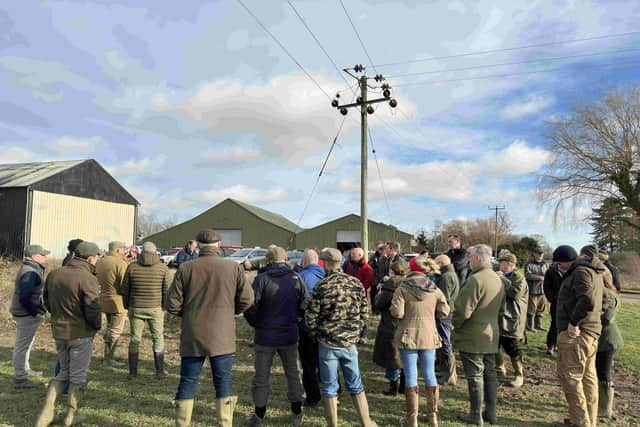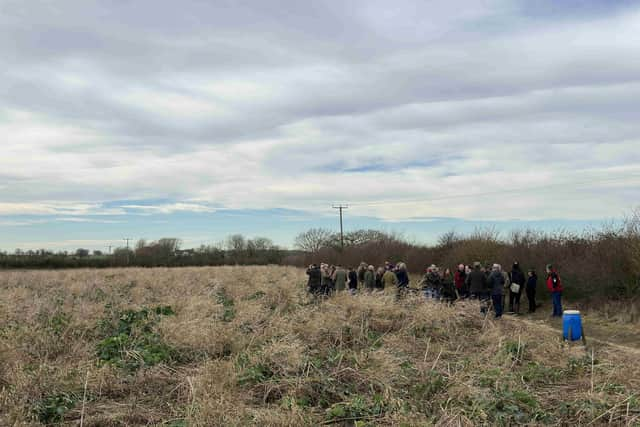GWCT’s 2024 Big Farmland Bird Count gets under way
and live on Freeview channel 276
Around 60 people attended last Friday’s launch which saw the count return to the place where it all began ten years ago – the Barker family’s farm in Suffolk.
It was at Lodge Farm, a 545-hectre arable farm in Westhorpe near Stowmarket, that the launch of the first ever Big Farmland Bird Count (BFBC) was held in 2014.
Advertisement
Advertisement
Farmers and representatives from the RSPB, NFU, Wildlife Trusts, Natural England, Defra, the Woodland Trust, Kings Crops, Suffolk County Council came along, as did the Bishop of St Edmundsbury and Ipswich, Martin Seeley, who has a keen interest in wildlife and agriculture.


The group was treated to a blustery farmland walk across the fields and only five minutes in, a red kite appeared above and performed an acrobatic display as it surveyed the field below.
Patrick Barker talked about the biodiversity measures in place on the award-winning farm and explained how supplementary winter feeding, hedgerow management and enhanced field margins and wild bird seed plots are all supporting farmland birds.
Bird expert Mark Nowers, from the RSPB, pointed out large flocks of yellowhammers diving in and out of the hedgerows, and other birds that could be heard and seen during the walk.
Advertisement
Advertisement
The GWCT’s Dr Roger Draycott was also on hand to talk about the practicalities of the count, how and where it should be done and what to look out for. He also explained how the data can help farmers and wildlife managers measure the impact of the conservation work they carry out.


Hedgerow experts Richard Negus and Richard Gould were on hand to add their expertise along with Natural England rural agronomy expert David Whiting.
Founder of the BFBC, Jim Egan, of Kings Crops, was also present and gave a glimpse of how it all started back in 2014 when he was working for the GWCT.
Jim said he was driving home one day with a colleague while listening to a piece on the radio about the RSPB Garden Birdwatch. Excitedly he turned to his friend and said: “We need to do the same thing for our farmland birds.”
That was the start of the Big Farmland Bird Count.
Advertisement
Advertisement


Encouraging farmers to take part, Jim said: “Please don’t be scared. Even if you think ‘I don’t know my birds well enough’, don’t worry. Just get out there and have a go, find out what’s on your land and even if all you recognise is a robin, blue tit and pigeon, that fine. You don’t need to be an expert. We just want to awaken that interest in people.”
In 2023 more than 460,000 birds of 149 different species were recorded across over 1.5 million acres of farmland.
The results will be published later in the spring.
The GWCT Big Farmland Bird Count runs from 2 to 18 February 2024. Find out more, download bird ID guides and sign up to the free webinar at www.bfbc.org.uk.
Signing up for the count is free and no specialist knowledge or equipment are required.